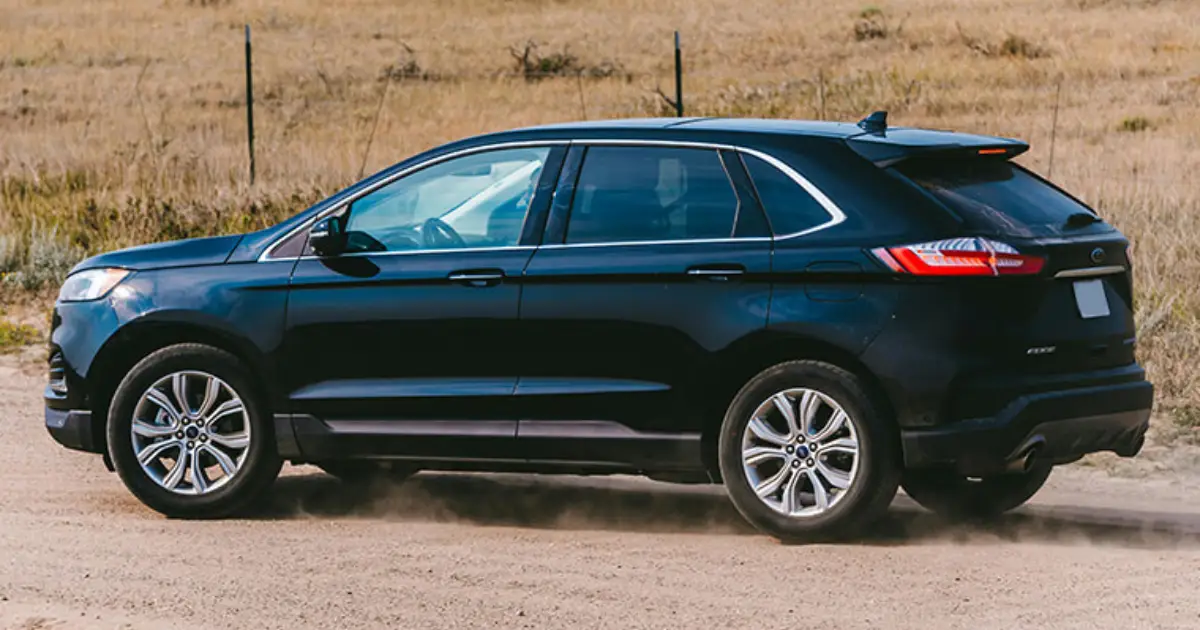
What Factors Should You Consider While Choosing Home Window Tinting?
11 Apr 2024, By AdminIn the realm of home improvement, there's a subtler yet incredibly impactful upgrade that often gets overlooked: home window tinting. Window tinting not only adds aesthetic appeal to your residence but also offers a range of practical benefits, from energy efficiency to enhanced privacy. However, choosing the right window tinting for your home involves considering various factors to ensure you make the most suitable choice. Let's delve into what you should ponder when selecting home window tinting.
Purpose and Goals
Before diving into the myriad options available, it's essential to define the purpose and goals you want to achieve with window tinting. Are you primarily concerned with reducing glare? Or perhaps you're looking to enhance privacy without sacrificing natural light? Understanding your objectives will guide you towards the most appropriate tinting solutions for your home.
Types of Window Tints
- Solar Control Films: Designed to reduce heat and glare from sunlight, solar control films can help maintain a comfortable indoor temperature while protecting your furnishings from UV damage.
- Privacy Films: Ideal for areas requiring increased privacy, these films obscure visibility from outside while allowing ample light to enter your home.
- Decorative Films: If you're looking to add a decorative touch to your windows, decorative films offer an array of patterns, textures, and colors to suit your aesthetic preferences.
- Security Films: For enhanced safety and protection, security films strengthen your windows, making them more resistant to break-ins and impacts.
Climate Considerations
The climate in your region plays a significant role in determining the type of window tinting that will best suit your needs. If you reside in a hot and sunny area, prioritizing solar control films can help reduce cooling costs and minimize sun damage to your interiors. Conversely, in colder climates, you might opt for tints that provide insulation to retain warmth during the winter months.
Legal Regulations
Before finalizing your decision on window tinting, it's crucial to familiarize yourself with any local regulations or restrictions pertaining to tint darkness and reflectivity. Failure to comply with these regulations could result in fines or the need to remove non-compliant tints, so be sure to do your research beforehand.
Quality and Warranty
Investing in high-quality window tinting ensures durability and long-term performance. Look for reputable brands that offer warranties, providing you with peace of mind and protection against potential defects or issues.
Professional Installation
While DIY window tinting kits are available, opting for professional installation is often the preferred choice to ensure proper application and optimal results. Experienced installers have the expertise and tools to achieve a flawless finish while minimizing the risk of bubbling, creasing, or improper alignment.
Budget Consideration
Lastly, consider your budget when selecting home window tinting. While premium options may offer additional features and benefits, there are also more budget-friendly alternatives that provide satisfactory results without breaking the bank. Determine your priorities and allocate your budget accordingly to find the best balance between cost and quality.
In conclusion, home window tinting is a valuable investment that offers both aesthetic enhancement and practical advantages. By carefully considering factors such as your objectives, climate, type of tint, and budget, you can select the most suitable tinting solution to meet your needs. Whether you're aiming to improve energy efficiency, increase privacy, or add a decorative element to your home, the right window tinting can transform your living space for the better.
Book Now

Choosing the Right Window Tint for Your Office: A Comprehensive Guide
11 Apr 2024, By AdminOffice window tinting is a valuable investment that can enhance the aesthetics, comfort, and energy efficiency of your workspace. Whether you're looking to reduce glare, improve privacy, or enhance the overall appearance of your office, choosing the right window tint is crucial. In this comprehensive guide, we'll explore the key factors to consider when selecting office window tinting to ensure you make an informed decision that aligns with your business needs.
Purpose of Window Tinting
Before diving into the world of window tint options, it's essential to identify the specific purposes for which you want to apply tint to your office windows. Common objectives include: Glare Reduction: Tints can minimize glare from the sun, creating a more comfortable working environment by reducing eye strain and distractions. Privacy Enhancement: Certain tints provide one-way visibility, allowing those inside the office to see out while preventing outsiders from peering in. Energy Efficiency: Window films can help regulate the temperature within your office, reducing the need for excessive air conditioning and heating. UV Protection: Tints can block harmful UV rays, protecting furniture, flooring, and equipment from fading and damage.
Types of Window Tint
Solar Control Films: These tints are designed to reduce heat and glare from the sun, promoting a more comfortable and energy-efficient workspace. Privacy Films: Ideal for meeting rooms or areas requiring confidentiality, privacy films can obstruct the view from the outside while maintaining visibility from within. Decorative Films: If aesthetics are a priority, decorative films come in various patterns and designs to enhance the visual appeal of your office. Safety and Security Films: These films add an extra layer of protection by holding shattered glass together, improving safety in the event of breakage.
Why should I consider office window tinting?
Office window tinting offers several benefits, including improved energy efficiency, reduced glare, enhanced privacy, and protection against harmful UV rays. Tinted windows can create a more comfortable and productive work environment for employees.
What factors should I consider when choosing the right window tint for my office?
Several factors should influence your decision, such as the type of film, level of tint, local regulations, and your specific needs. Consider factors like the amount of natural light you want, the level of privacy required, and the aesthetic appeal of the tint.
What types of window tint films are suitable for office use?
A: There are various types of window tint films designed for different purposes. Some common types include solar control films, privacy films, decorative films, and safety/security films. Solar control films are popular for reducing heat and glare, while privacy films can enhance confidentiality within the office.
How does office window tinting contribute to energy efficiency?
Window tinting can significantly improve energy efficiency by reducing the heat entering the office space. Solar control films, in particular, can block a considerable amount of heat, helping to maintain a comfortable temperature and reducing the need for excessive air conditioning.
Are there any legal considerations when it comes to office window tinting?
Yes, local regulations may govern the permissible level of tint for commercial buildings. It's crucial to check with local authorities to ensure compliance with tinting laws. Non-compliance could result in fines or the need to remove the tint.
Can window tinting protect against UV rays?
Yes, many window tint films are designed to block a significant percentage of harmful UV rays. This not only protects employees from potential health issues but also helps prevent furniture and interior elements from fading due to prolonged exposure to sunlight.
How do I choose the right level of tint for my office windows?
The level of tint you choose depends on your specific needs. If glare reduction and heat rejection are top priorities, a darker tint with a higher Solar Heat Gain Coefficient (SHGC) may be suitable. If maintaining a more open and bright environment is crucial, a lighter tint with lower SHGC may be preferred.
Can office window tinting enhance security?
Yes, certain types of window tint films, such as safety/security films, are designed to reinforce glass, making it more resistant to breakage. This can enhance the security of your office space by providing an additional layer of protection against forced entry or accidents.
How do I maintain and clean tinted windows in my office?
Cleaning tinted windows requires gentle care to avoid damaging the film. Use a mild soapy solution and a soft cloth or sponge for cleaning. Avoid abrasive materials or harsh chemicals, as these can scratch or damage the tint.
What is the expected lifespan of office window tinting?
The lifespan of window tinting can vary depending on factors such as the quality of the film, installation, and environmental conditions. High-quality films, when professionally installed, can last for many years. It's essential to follow the manufacturer's recommendations for maintenance and care to extend the lifespan of the tint. Choosing the right window tint for your office involves considering various factors to ensure it meets your specific requirements. Whether it's improving energy efficiency, enhancing privacy, or adding a decorative touch, the right office window tint can contribute to a more comfortable and productive workspace.

Choosing the Right Window Tint for Your Vehicle in Rotorua: What You Need to Know
11 Apr 2024, By AdminRegarding enhancing your vehicle's aesthetics and improving your driving experience in Rotorua, car window tinting is a popular choice among vehicle owners. The process of applying a thin layer of film to your car's windows offers numerous benefits, from reducing glare and UV radiation to providing increased privacy. However, choosing the right window tint for your car in Rotorua is crucial to ensure compliance with local regulations and achieve the desired results. In this blog, we will explore the key factors to consider when opting for car window tinting in Rotorua and why selecting a reputable service provider is essential for a successful installation.
1. Familiarize Yourself with Local Regulations
Before diving into the different types of window tints available, it's essential to understand the specific regulations governing car window tinting in Rotorua. New Zealand has strict laws regarding the darkness levels of window tints, which vary for different windows on the vehicle. Compliance with these laws is crucial to avoid legal complications and ensure a safe driving experience.
2. Types of Window Tints
Car window tints come in various materials, each offering different benefits and appearances. The most common types of window tints include:
a) Dyed Window Tinting: This type of tint uses multiple layers of dye to absorb solar heat and reduce glare. Dyed window tints are generally more affordable but may fade over time.
b) Metalized Window Tinting: Metalized tints are known for their heat-rejecting properties. They are durable, block UV rays effectively, and provide a reflective appearance. However, they may interfere with electronic signals like GPS and cell phone reception.
c) Carbon Window Tinting: Carbon tints are a premium option, offering superior heat rejection, reduced fading, and a sleek matte appearance. They do not interfere with electronic signals and are less prone to bubbling or discolouration.
d) Ceramic Window Tinting: Ceramic tints are the top-of-the-line choice, providing excellent heat reduction without affecting electronic devices. They also offer maximum UV protection and do not fade over time. However, they tend to be more expensive than other types of tints.
3. Consider Your Needs
While all window tints provide benefits such as heat reduction and UV protection, your specific requirements and preferences will help you choose the best option. If you're primarily concerned about cost-effectiveness, dyed or metalized tints may be suitable. For a balance between performance and aesthetics, carbon tints are an excellent choice. If budget is not a concern and you want the best of the best, ceramic tints are the way to go.
4. Seek Professional Installation
Professional installation is crucial to achieve optimal results regardless of the type of window tint you choose. A reputable car window tinting service in Rotorua will have skilled technicians who understand local regulations and can ensure a flawless application. DIY tinting or low-quality installation might lead to bubbling, peeling, or improper tint darkness, which not only looks unsightly but can also hinder visibility and compromise safety.
Car window tinting in Rotorua can be a game-changer for your vehicle, providing various benefits ranging from improved aesthetics to increased comfort and privacy. However, it's vital to educate yourself on local regulations, explore the different types of window tints available, and select a reliable service provider to ensure a successful installation. Dr. Tint & Wrap Rotorua is the ideal choice for your vehicle's window tinting needs in Rotorua, offering expert service and top-quality products to ensure optimal results. With their experienced team and commitment to customer satisfaction, you can trust them to provide the best window tinting solution for your car.

Stay Cool on the Road: How the Right Window Tinting Can Beat the Summer Heat
11 Apr 2024, By AdminWhether it is your first car or a second buy, a car is always a prized possession. Becoming a proud owner of a sophisticated vehicle is nothing less than an achievement. The story does not end here! If you are a car enthusiast, you will probably love to make some modifications to enhance its aesthetics and value.
Have you ever considered tinting your car windows? If not, this summer is absolutely the perfect time to get it done! Car window tinting is not only about making your car look classy and sophisticated, but it does have potential benefits.
Auto window tinting is becoming predominantly popular this season, and we have listed all the reasons, making it a worthy investment. Let’s check them out.
Auto Window Tinting: The Perfect Score!
Let’s face it; every car does not come from the showroom with tinted windows. Lucky those who already have it! Others have to live with the glaring sun on their face or get a customized service for tinted windows.
Now, why do we suggest you tint your car windows?
Glare Reduction- The most obvious reason to install a black or grey film on the windows is to reduce glare and enable a better of the road and the surroundings. Too much light makes you squint. As a result, you become prone to road accidents. So, whether it is the bright sunlight or the reflection from another vehicle, a tinted window curtails glare.
Block UV Rays- Driving on a hot sunny day means abundant exposure to UV rays. Despite applying sunscreens and sunblock creams, you still are exposed to the sun rays. What should you do? Tint the car windows and enjoy a more comfortable and safer drive! The tint films block UV rays, protecting you from their harmful effects.
Reduces Heat- Car tinting Tauranga is one of the best ways to keep off the heat while you are on the road! Your car’s interior feels cooler and more comfortable. Whether you have to park your car outside in the sun or have a long travel ahead, the interior of the car stays bracing.
Eliminate Health Risks - Often, prolonged driving in a very hot environment increases the risk of several health problems. Migraines, palpitation, and sun tanning are prevalent problems related to high temperatures. Sometimes, you may feel fatigued and exasperated when you have to deal with an uncomfortable surrounding.
Promote Energy Efficiency - What happens when you have a cooler temperature inside the car? The use of the air conditioning system becomes less. As a result, fuel consumption also decreases. It implies that you can save on your pockets! Isn’t it awesome?
Enhanced Protection - Driving a car means you are always susceptible to risks. In such an instance, if there is any physical impact on your car, even if the windows shatter, the glass pieces won’t fall apart. They will stick to the tint film. It saves the occupants inside from injuries.
Safeguard Upholstery - The cost to tint car windows is much less than your car upholstery! We mean that most tears and fading of the car upholstery happen due to excessive exposure to sunlight. Consider the seat covers or the synthetic seat belts, you will notice fading or tears at some point. You can considerably delay the process by tinting the windows and minimizing heat and light exposure.
Better Privacy - Undeniably, tinted windows provide better privacy than clear windows. Though you will be able to see the surroundings clearly, the ones outside will not get a transparent view of the interiors. Therefore, VIPs generally travel in cars with tinted windows.
Increased Comfort - When you have a cooler and more secure environment, naturally it boosts comfort. The heat does not burn your skin, the light stops glaring, and the ambience feels privatized- all of these contribute to enhanced comfort.
Boosted Aesthetics - Finally, how can anyone miss spotting a car with black windows? It looks highly sophisticated and classy. Anyone will turn their head to look at the car! So, elegance and class personified!
Key Takeaways
The benefit of car window tinting is enormous! From increased safety to enhanced aesthetic appeal, you have so many factors to count on! If window tinting was never on your list, we think now is the time you think over it and give it a try. The result will be marvellous!
